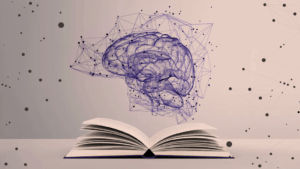The Transformative Impact of AI on Education
Artificial Intelligence (AI) is revolutionizing numerous sectors, and education is no exception. From personalized learning experiences to administrative efficiencies, AI is poised to redefine how we teach and learn. This blog explores the multifaceted impact of AI on education, highlighting its benefits, challenges, and future potential.

Personalized Learning Experiences
One of the most significant advantages of AI in education is its ability to provide personalized learning experiences. Traditional classroom settings often struggle to cater to the diverse needs of individual students. AI can analyze students’ learning patterns, strengths, and weaknesses, enabling the creation of customized learning plans. For example, platforms like Khan Academy and Coursera use AI to recommend courses and materials tailored to each learner’s progress and preferences. This individualized approach ensures that students can learn at their own pace, making education more accessible and effective.
Intelligent Tutoring Systems
AI-driven tutoring systems offer students additional support outside the classroom. These systems, such as Carnegie Learning and Knewton, Khan Academy etc provide interactive and adaptive learning experiences. They can answer students’ questions, provide instant feedback, and offer explanations for complex concepts. This continuous support helps reinforce classroom learning and ensures that students have a reliable resource for overcoming academic challenges.
Enhancing Administrative Efficiency
Beyond direct teaching applications, AI also enhances administrative efficiency in educational institutions. Automating routine tasks such as grading, scheduling, and managing student records allows educators to focus more on teaching and less on paperwork. Tools like Gradescope and Turnitin streamline the grading process by quickly assessing assignments and identifying potential plagiarism. This not only saves time but also ensures fair and consistent evaluation of student work.
Supporting Teachers
AI is a valuable ally for teachers, providing them with insights and tools to improve their teaching methods. Predictive analytics can help identify students at risk of falling behind, allowing for early intervention. AI-driven platforms can also assist in curriculum development by analyzing the effectiveness of teaching materials and suggesting improvements. Moreover, virtual classrooms powered by AI can facilitate remote learning, making education more flexible and accessible.
Creating the Perfect Study Environment with Deepa’s Reading Room
In the quest to maximize the benefits of AI in education, it’s crucial to consider the physical and digital environments in which students learn. This is where Deepa’s Reading Room comes into play. Designed to create an ideal study ambiance, This innovative space ensures that students can focus and absorb information more effectively, making it an excellent complement to AI-enhanced learning tools, in a focused and distraction free surroundings.
Addressing Learning Disabilities
AI has the potential to significantly improve education for students with learning disabilities. Assistive technologies, such as speech-to-text and text-to-speech applications, help students with dyslexia or visual impairments access educational content more easily. AI can also develop personalized learning strategies that cater to the specific needs of students with ADHD, autism, and other learning disabilities, ensuring that they receive the support they need to succeed academically.
Global Access to Education
AI is breaking down geographical barriers, making education accessible to students worldwide. Online learning platforms powered by AI can reach students in remote or underserved areas, providing them with quality education that was previously out of reach. Language translation technologies enable learners to access educational content in multiple languages, further democratizing education.
Challenges and Ethical Considerations
While the benefits of AI in education are numerous, there are also challenges and ethical considerations to address. Data privacy is a significant concern, as AI systems often require access to sensitive student information. Ensuring that this data is protected and used responsibly is paramount. Additionally, there is a risk of over-reliance on AI, potentially diminishing the human element that is crucial in education. Teachers and AI should complement each other, not compete.
The Future of AI in Education
Looking ahead, the integration of AI in education is expected to deepen. Advances in natural language processing and machine learning will further enhance personalized learning and intelligent tutoring systems. AI-driven analytics will continue to provide valuable insights into educational practices, helping institutions improve their strategies and outcomes. Moreover, as AI becomes more sophisticated, it will likely play a crucial role in developing new educational technologies and methodologies.
In conclusion, AI holds tremendous potential to transform education. By providing personalized learning experiences, supporting teachers, enhancing administrative efficiency, and making education accessible to all, AI can help create a more effective and equitable educational system. However, it is essential to address the accompanying challenges and ethical considerations to ensure that the integration of AI in education benefits all stakeholders. As we navigate this technological frontier, the goal should always be to enhance the learning experience while preserving the invaluable human touch that defines education. And with Spaces like Deepa’s Reading Room, we can ensure that students not only learn better but also do so in environments that foster their overall well-being and productivity.
Latest Post
-
 Beyond Genres, Beyond Geographies: Curating a Singular Experience for the Modern Reader31 Jul 2024
Beyond Genres, Beyond Geographies: Curating a Singular Experience for the Modern Reader31 Jul 2024 -
 Personalizing Your Space: How to Create a Productive Reading Nook24 Jul 2024
Personalizing Your Space: How to Create a Productive Reading Nook24 Jul 2024 -
 The Science Behind Ambiance at Deepa’s Reading Room: Enhancing Reading Efficiency through Environment18 Jul 2024
The Science Behind Ambiance at Deepa’s Reading Room: Enhancing Reading Efficiency through Environment18 Jul 2024 -
 The Digital Age vs Traditional Reading Spaces:Deepa's Perspective12 Jul 2024
The Digital Age vs Traditional Reading Spaces:Deepa's Perspective12 Jul 2024 -
 Unwind, Unplug, and Unleash: The Rebirth of Reading Rooms as Self-Care Sanctuaries26 Jun 2024
Unwind, Unplug, and Unleash: The Rebirth of Reading Rooms as Self-Care Sanctuaries26 Jun 2024
Book your seat now
Book your seat now and indulge in an environment tailored for academic excellence. Your study oasis awaits – reserve your spot today!


